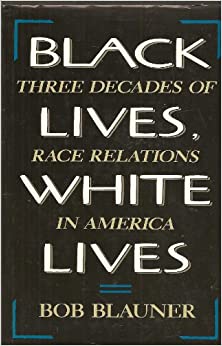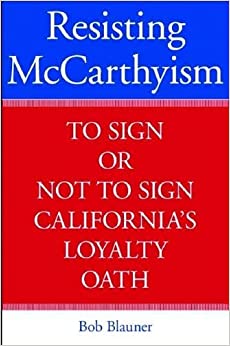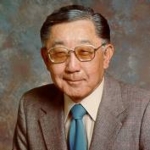Background
Robert "Bob" Blauner was born on May 18, 1929, in Chicago, Illinois, United States. He is a son of Samuel Blauner, a lawyer and poet, and Esther Blauner, maiden name Shapiro, a librarian.

1985
Robert Blauner during the interview on October 18, 1985.
Robert Blauner, professor, scientist, sociologist, author.
6631 N Bosworth Ave, Chicago, IL 60626, United States
Robert Blauner spent his high school years at Sullivan High School in Chicago.
5801 South Ellis Avenue Chicago, Illinois 60637, United States
Robert Blauner received a Bachelor of Arts and a Master of Arts from the University of Chicago.
200 California Hall, Berkeley, California 94720
Robert Blauner received a Doctor of Philosophy from the University of California-Berkeley.









(Suggests new theories of race relations by revealing the ...)
Suggests new theories of race relations by revealing the strategic role of racism and racial oppression in the American social structure.
https://www.amazon.com/Racial-Oppression-America-Bob-Blauner/dp/0060407719/ref=sr_1_1?dchild=1&keywords=bob+blauner&qid=1587627412&sr=8-1
1972

(Presents the personal stories of sixteen blacks and twelv...)
Presents the personal stories of sixteen blacks and twelve whites caught up in the crucible of rapid racial, social, and political change.
https://www.amazon.com/Black-Lives-White-Decades-Relations/dp/0520062612/ref=sr_1_3?dchild=1&keywords=bob+blauner&qid=1587627664&s=books&sr=1-3
1989

(Editor Bob Blauner has assembled a diverse group of write...)
Editor Bob Blauner has assembled a diverse group of writers on a topic shared by them all: Their sorrow upon the death of a mother and what it means to continue on without her physical presence. Featured works form some of our greatest writers, including John Updike, Henry Louis Gates, Jr., Gus Lee, Russel Baker, and John Cheever, this heartfelt anthology also includes original and provocative essays by some of America's rising stars, such as Peter Najarian and Juan Felipe Harris. Issues such as the loss of a mother who dies too young or, in contrast, the painful sight of an aging mother in decline are explored with great insight. Whether the end comes naturally, through euthanasia or tragically and unexpectedly, how the loss is experienced is handled with great sensitivity. Our Mothers' Spirits is a collection of personal narratives in which each man tells the story of his mother's life and death.
https://www.amazon.com/Our-Mothers-Spirits-Great-Writers/dp/0060392266/ref=sr_1_4?dchild=1&keywords=bob+blauner&qid=1587627664&s=books&sr=1-4
1997

(This volume makes the case that race and racism still per...)
This volume makes the case that race and racism still permeate every aspect of American experience. Blauner launched his concept of internal colonialism in the turbulent 1960s, a period in which many Americans worried that racial conflicts would propel the country into another civil war. The notion that the systematic oppression of people of color in the United States resembles the situation of colonized populations in Third World countries still informs much of the academic research on race as well as public discourse. Indeed, today's critical race and whiteness studies are deeply indebted to Blauner's work on internal colonialism and the pervasiveness of white privilege.
http://www.amazon.com/gp/product/1566398746/?tag=2022091-20
2001

(Of the sixty-nine professors fired nationwide for politic...)
Of the sixty-nine professors fired nationwide for political reasons during the McCarthy Era, nearly half were from the University of California. A small band of men and women at California's Berkeley and Los Angeles campuses defied the stranglehold of McCarthyism in a refusal to sign the non-communist loyalty oath required by the institution. While college professors across the nation meekly acquiesced to non-communist oaths in order to keep their jobs, this group of "nonsigners" resisted in defense of free speech. Revisiting a controversy considered one of the most important crises ever faced by an American university, Bob Blauner brings to life the stories of those who exhibited such civic courage.
https://www.amazon.com/gp/product/0804759227/ref=dbs_a_def_rwt_hsch_vapi_taft_p1_i2
2009
professor scientist sociologist author
Robert "Bob" Blauner was born on May 18, 1929, in Chicago, Illinois, United States. He is a son of Samuel Blauner, a lawyer and poet, and Esther Blauner, maiden name Shapiro, a librarian.
Robert Blauner spent his high school years at Sullivan High School in Chicago. He learned the craft of writing at thirteen as a sports writer for my high school paper. He received a Bachelor of Arts (1948) and a Master of Arts (1950) from the University of Chicago. Tom Shibutani was his main Master of Arts advisor at Chicago for a 1950 thesis on the social psychology of personal names. In 1962, he received a Doctor of Philosophy from the University of California-Berkeley.
Robert Blauner became a lecturer and assistant professor of sociology in 1961 at San Francisco State College (now University) but did not obtain full professorship until 1978 - a relatively slow career progression that some former colleagues attributed to his willingness to challenge his department and take aggressive stances on moral issues.
In 1962-1963, he worked as an assistant professor of sociology at the University of Chicago. In 1963, he began the career at the University of California-Berkeley: he was an assistant professor (1963-1967), an associate professor ( 1967-1978), a professor of sociology (1978-1993), and became a professor emeritus in 1993. In the late 1960s, Blauner started an affirmative action program in the campus’ sociology graduate program, actively recruiting Black and Latino students. By the early 1980s, he had helped the campus bring sanctions against sociology professor Abdelbaki Hermassi, who was accused of sexual harassment by 13 female students. Blauner also worked as a consultant to poverty programs in the 1960s and 1970s.
He was the author of such classic studies as Alienation and Freedom (1964), partly informed by his own experiences as a worker for 5 years at International Harvester in Emeryville - a book that prefigured the subsequent rise of Marxist studies of the labor process; Racial Oppression in America (1972) that deepened and popularized the idea of internal colonialism - a critical contribution to the transformation of race studies in the 1970s - that was updated and expanded in 2001anticipating the discussion that has erupted nationally today; Black Lives, White Lives (1989) which portrayed race relations through and after the civil rights era based on extended interviews with blacks and whites between 1968 and 1986; Our Mothers' Spirits (1997), a compassionate collection of men’s writings grieving the loss of their mothers; Resisting McCarthyism (2009) which focused on the brave Berkeley faculty who refused to sign the Loyalty Oath, and on the politics that set the stage for the Free Speech Movement.
Robert Blauner retired in 1993. After retiring he spent most of his time on his writings - 90 percent of which he estimated in 2003 were unpublished.
Robert Blauner is the author of a well-known "Blauner Hypothesis." His work was funded by major groups such as the National Institute of Mental Health, the Rockefeller Foundation, and the Social Science Research Council. He published six books and dozens of shorter articles, including the critically acclaimed "Black Lives, White Lives: Three Decades of Race Relations in America," which would retain its relevance decades later as America returns it attention to racial inequality and implicit bias.
(Editor Bob Blauner has assembled a diverse group of write...)
1997(Of the sixty-nine professors fired nationwide for politic...)
2009(Presents the personal stories of sixteen blacks and twelv...)
1989(Suggests new theories of race relations by revealing the ...)
1972(This volume makes the case that race and racism still per...)
2001Robert Blauner was an independent, left-liberal anarchist.
Robert Blauner wrote on factory workers and their work because he spent five years in factories as a communist in his twenties. He wrote three books on race in America because the issue of racial justice had spoken to him since he was seventeen. He wrote a "seminal" article on death because he had suffered from death anxiety at age thirty-two. He edited a book about the death of mothers because he wrote a great piece about his own mother three years after she had died. He also taught a course on men's lives for twenty years and found all the focus was on sons and fathers, nothing on mothers. His hypothesis, the "Blauner Hypothesis," is that minority groups created by colonization will experience more intense prejudice, racism, and discrimination than those created by immigration. The disadvantaged status of colonized groups will persist longer and be more difficult to overcome than the disadvantaged status faced by groups created by immigration.
Quotations: "The subjects I've written on all come out of my life history, and this I know is true for everyone, even the most "scientific" scholars."
Robert Blauner was a man of integrity and principle in practice as well as in theory. After retirement, he spent 23 years doing what he always enjoyed, following baseball, playing chess and poker, above all writing his memoirs, and living a life devoted to his wife, the filmmaker, Karina Epperlein.
Often he regretted not getting a Master of Arts in journalism and going into newspaper work. His thirty-five-plus years in sociology and the academic world were frustrating because the demands of teaching left him too little time to write, and he always thought that academic writing, especially in the social sciences was not "real writing."
Quotes from others about the person
Raka Ray, Professor and Dean, Division of Social Sciences, The University of California-Berkeley: "I met Bob right after he retired. He lived and worked in difficult times for the department, and was pretty alienated when I met him. Yet I hope we never forget what he stood for: That he stood up and called out sexual harassment when few did (in 1978) and that he thought about US race relations in terms of internal colonialism shows the extent to which Bob stood for integrity, imagination and intellect. I am proud to be in a department that he worked in and shaped so many generations of students."
Robert Blauner's wife Karina Epperlein: "He loved simplicity and authenticity in people, he really embodied those things. That endeared him to all the people who felt as underdogs."
Robert Blauner married his high school classmate Virginia Bauer in 1962. The marriage ended in 1980. He married Karina Epperlein on July 12, 1992. She gave birth to two children: Marya and Jonathan.

Independent filmmaker Karina Epperlein has many years of experience as a theater artist, teacher, and filmmaker. Karina's work is always looking into dark corners, finding the light, addressing the themes of justice, transformation, and healing. Her award-winning documentary work of twenty-two years spans themes from women in prison (Voices from Inside, 1996), the Armenian genocide, to dance and disability. Her short film Phoenix Dance (2006) screened in more than 120 festivals and theatres all over the world. It was "short-listed" for the 2006 Oscar Nomination for Short Documentary, and won numerous awards, including a Golden Gate Award from the San Francisco Int’l Film Festival. Finding the Gold Within (2014) is her tenth film.

Tamotsu Shibutani majored in sociology and philosophy at the University of California at Berkeley. He was a professor in the Department of Sociology at the University of California, Santa Barbara. He worked on the tradition of symbolic interactionism. Shibutani was Robert Blauner's main advisor for a thesis on the social psychology of personal names.
